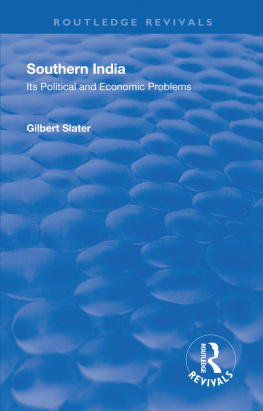Routledge Revivals
Real Democracy in Operation
First published in 1920 by George Allen & Unwin Ltd.
This edition first published in 2018 by Routledge
2 Park Square, Milton Park, Abingdon, Oxon, OX14 4RN
and by Routledge
711 Third Avenue, New York, NY 10017
Routledge is an imprint of the Taylor & Francis Group, an informa business
1920 Taylor & Francis
All rights reserved. No part of this book may be reprinted or reproduced or utilised in any form or by any electronic, mechanical, or other means, now known or hereafter invented, including photocopying and recording, or in any information storage or retrieval system, without permission in writing from the publishers.
Publishers Note
The publisher has gone to great lengths to ensure the quality of this reprint but points out that some imperfections in the original copies may be apparent.
Disclaimer
The publisher has made every effort to trace copyright holders and welcomes correspondence from those they have been unable to contact.
A Library of Congress record exists under ISBN: 2327710
ISBN 13: 978-1-138-55250-0 (hbk)
ISBN 13: 978-0-203-70443-1 (ebk)
Real Democracy in Operation
Real Democracy in Operation
The Example of Switzerland
BY
FELIX BONJOUR
FORMERLY PRESIDENT OF THE SWISS NATIONAL COUNCIL
T RANSLATED FROM THE F RENCH BY
C. LEONARD LEESE

LONDON: GEORGE ALLEN & UNWIN LTD.
RUSKIN HOUSE, 40 MUSEUM STREET, W.C. 1
First published in 1920
(All rights reserved)
T HE majority of those who study the social phenomena and the fluctuations of public opinion resulting from the present war, agree in predicting a considerable advance for the democratic idea. This advance will not consist merely in certain electual reforms which governments will be forced to concede while the war still continues. Almost everywhere it is felt that a more extensive and more energetic participation in the political life and government of the nations by the democracies of those nations will be one of the means of preventing a recurrence of catastrophes such as those which have laid waste a portion of the globe for four years. An Hungarian nobleman, Count Karolyi, wrote to his electors a few days ago: The necessary preliminary to the possibility of peace is the democratization of the States, which would, as a result of this, be in opposition to imperialistic excesses.
There is, therefore, a peculiar interest at this juncture in surveying the institutions of those countries which in our own time have carried farthest the application of the detnocratic idea. In this, without doubt, Switzerland leads the way. The practice of direct democracy has been extended there to an extraordinary degree, and the end is not yet. The aim of this little book is to describe the mechanism of the democratic institutions peculiar to Switzerland and to explain the effects of those institutions. It is not intended to be either a scientific treatise of law or a collection of sensational disclosures. During the last few years, more than at any other time, our democratic institutions have been examined both in Switzerland and in other countries by acute and well qualified students. But up to the present there has perhaps been no book in French giving a comprehensive view of the subject, which was written for readers other than politicians and jurists and which might be of interest even outside our own country. Although these pages are intended in the first instance for students of political movements or for those who play an active part in them, the author cherishes a hope that they will be read by others who do not come within either of these categories. This hope has led him to give to his work a character likely to render it acceptable to those who usually find little to attract them in questions of constitutional law.
I have just said that Switzerland was in the vanguard of democratic evolution. That is consequent upon her origin, her traditions and the distinctly democratic nature of the groups which founded the Swiss Confederation. It is the result, too, of her federal organization. There is not one democracy in Switzerland; there are as many democracies as there are cantons and demicantons. The twenty-five more or less autonomous states which comprise the Confederation and this Confederation itself are political laboratories, always at work. They are all so many small nations animated by a ceaseless desire to perfect their political organization and to develop their democratic institutions. Politically Switzerland offers a picture almost as varied in its character as it does physically. All forms of popular government are, or have been, practised in Switzerland, and the results of all of them can be studied there at the present time. The cantons borrow one from another those forms of government which appear to succeed best. When some new institution has worked well in the majority of the cantons, the Confederation, in its turn, adopts it and applies it in Its own peculiar province. This was what happened in the case of democratic institutions. It was the cantons that imposed them upon the Confederation.
Since it is the federative organization of Switzerland which has permitted this democratic growth, it seems appropriate to begin with a discussion of the Swiss form of federalism.
Note
Since these lines were written, in August 1918, unexpected events in the theatre of war have precipitated this movement. It is almost unnecessary to call to remembrance the turn which the democratization of the Central Powers has taken within recent times.
Real Democracy in Operation
I
Federalism in Switzerland
S WITZERLAND is a federal Republic consisting of twenty-five states, cantons or demicantons, which for a long time enjoyed almost absolute sovereignty, but which, especially since 1848, gradually ceded a large part of their sovereign rights to the people of the Confederation as a whole. Before 1848, the federal bond was weak, the central government almost non-existent. The central power was exercised by a Diet, in which all the cantons were represented equally. The members of the Diet could only make decisions in accordance with their instructions from the cantons or after referring the questions to them. The Constitution of 1848the first permanent Constitution worthy of the name that Switzerland ever hadinvolved a noteworthy, change. After the example of the United States, two Chambers were created, of which one, the National Council, represented the people, and the other, the Council of States, composed roughly on the model of the old Diet, but without referendum and without instructions for its members, represented the cantons. The two Chambers elected jointly a central executive authoritythe Federal Council. Customs and posts were transferred from the cantons to the federal government. A single system of weights and measures was introduced. There was a Federal Court, which, however, was not permanent, and a federal army made up of contingents from the cantons. The Confederation alone had the right of representing Switzerland in foreign affairs. The constitutions of the cantons were subject to ratification by the Chambers.
The Constitution of 1874 added still further to the functions of the central authority at the expense of cantonal sovereignty, and a similar tendency may be traced in nearly all the minor changes which were subsequently adopted. The Federal Tribunal was made permanent. The greater part of the law was unified. The administration of the army was entrusted to the Confederation. The rights of the individual, in particular liberty of conscience and of belief and liberty of commerce and of industry, were guaranteed by the Confederation and placed under the protection of the Federal Council and the Federal Tribunal. The principal railways were nationalized. Popular rights, such as the referendum upon legislation, already in operation in the majority of the cantons, were introduced in their turn into the Confederation and conferred fresh powers upon the Swiss people.














